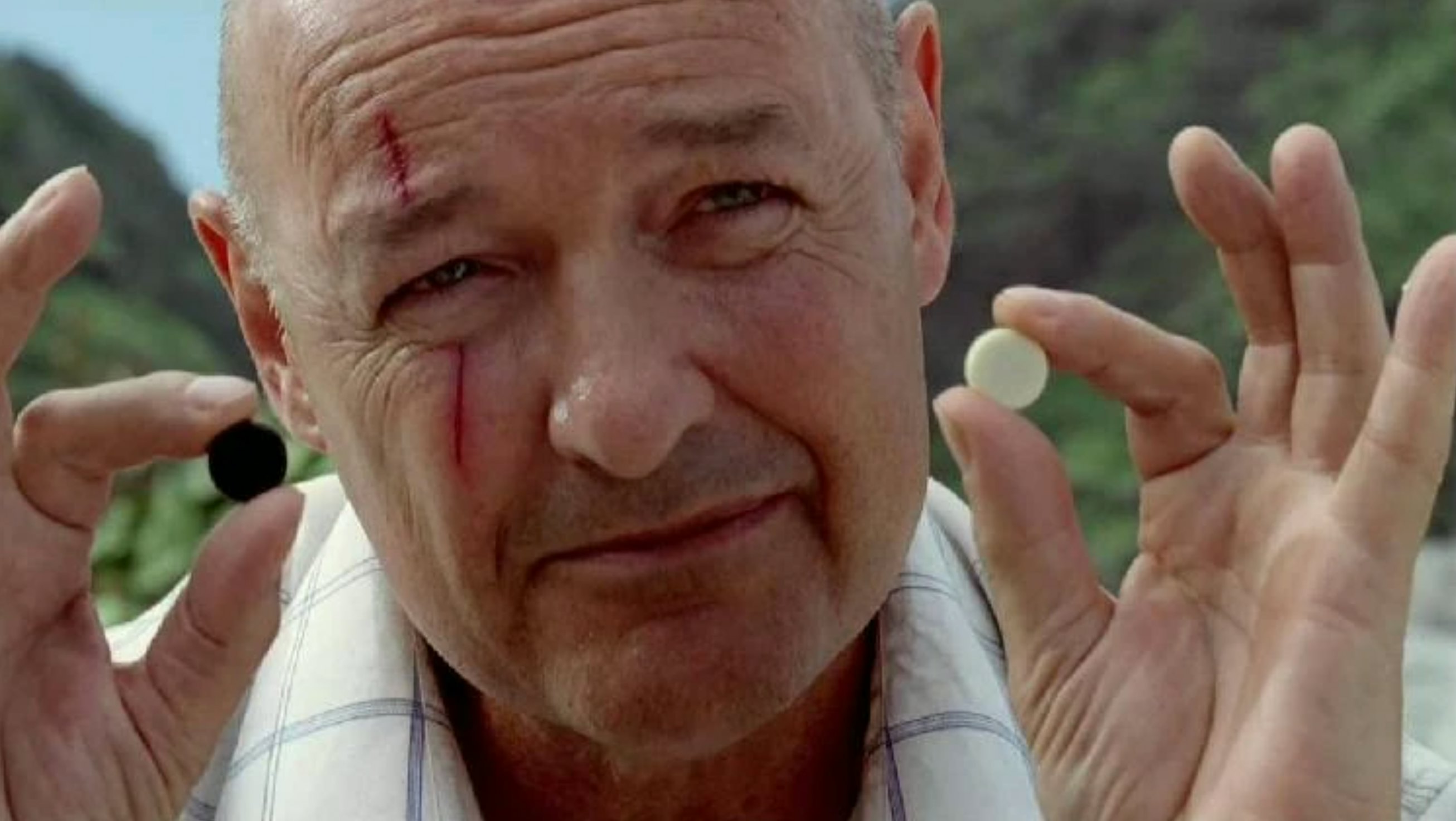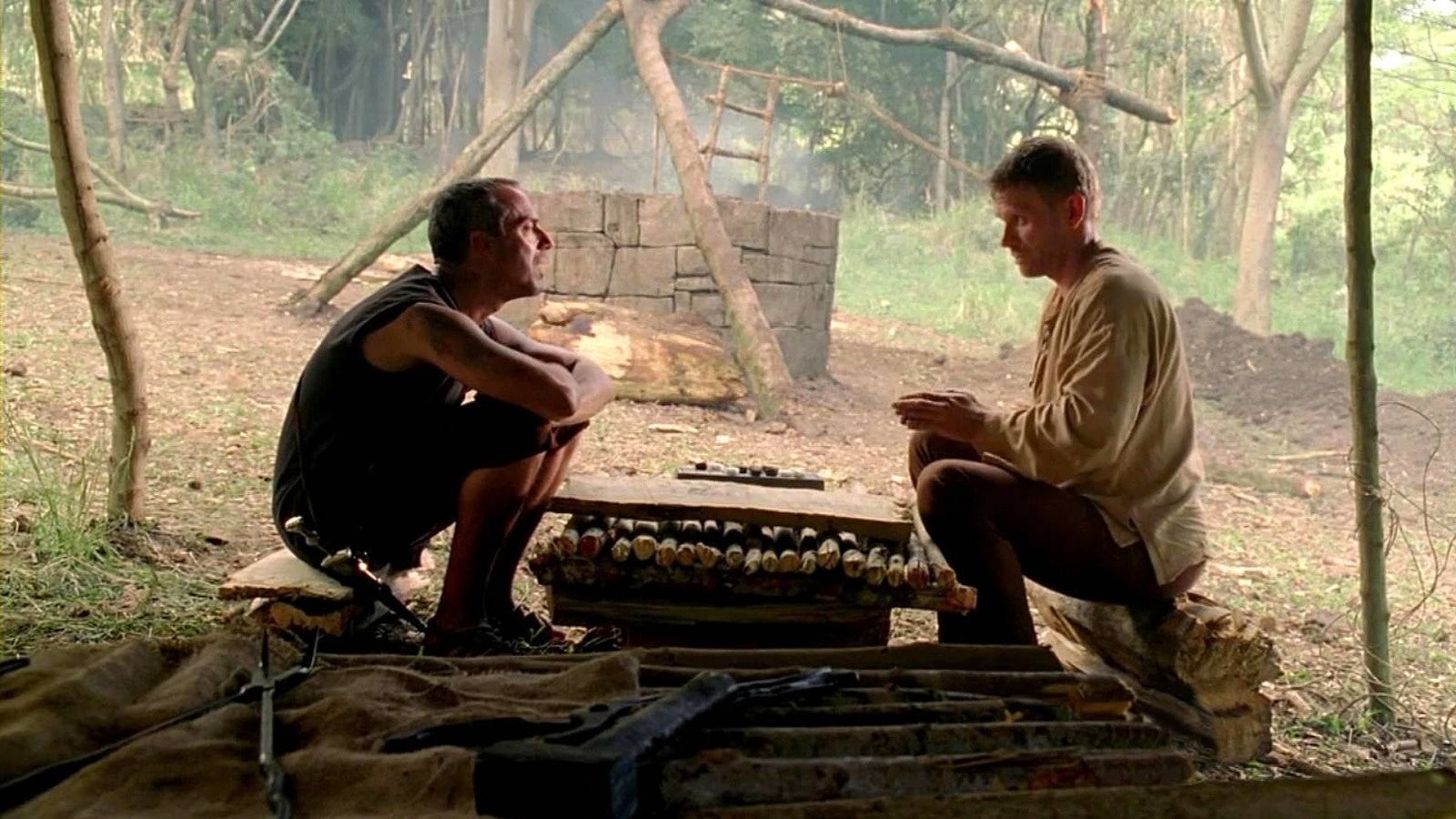
What was Lost about? On the surface, it was a show about a bunch of strangers stranded on a mysterious island, but any fan will tell you that Lost is about the shared humanity that unites its sprawling and diverse cast... or something like that. Lost is a show about fear of the other and of the unknown. It’s a show about science and faith and time travel and religion. But ultimately, Lost was a show about good versus evil, and that was clear from the very beginning — even if not everyone realized it.
In the second episode of Lost’s two-part pilot, once the wreckage of Oceanic Airlines Flight 815 has stopped burning and the survivors begin to settle in for what they hope will be a short stay, John Locke (Terry O'Quinn) finds a quiet spot on the beach. He’s soon joined by Walt, a young boy traveling with his father Michael and their dog Vincent. Walt asks about the board game that Locke is quietly setting up.
“Backgammon is the oldest game in the world,” Locke replies. “Archeologists found sets when they excavated the ruins of ancient Mesopotamia. Five thousand years old. That's older than Jesus Christ.”
He goes on to explain the rules: “Two players. Two sides. One is light... one is dark. Walt, do you want to know a secret?”

At this point, Walt seems spooked by the weird older man (and rightfully so) and walks away. The episode moves on to other characters and their drama, but with the benefit of hindsight, it’s clear that Locke’s little backgammon speech was always meant to foreshadow Lost’s ending.
As we learn much later in the show, the events of Lost can all be traced back to an eternal conflict between two immortal brothers: Jacob and the Man in Black. They were born on the island and soon became rivals, eventually leading to a physical fight in which Jacob throws his brother into a magical pit, transforming him into the mysterious Smoke Monster that haunts the island.
In case it wasn’t clear, the Man in Black is evil (or “dark”) while Jacob is good (or “light”). Throughout history, the Man in Black’s goal is to escape the island and destroy the Earth, while Jacob does everything in his power to keep his brother in place. Everyone else in Lost (including Locke) is nothing more than a pawn in this brotherly battle between light and dark.

Okay, you can probably stop reading now. There’s only so much you can say about one sentence from a 20 year-old-show explaining the rules of backgammon (and not doing a very good job of it). But if you feel like sticking around, there are a few other fun details to discuss.
For one thing, it’s worth dissecting Locke’s creepy non-sequitur: “Walt, do you want to know a secret?” This kind of thing is pretty much standard practice for the character, whose vibe in Lost can mostly be described as your stoner, apocalypse-prepper uncle who owns a lot of guns and knows how to use them. But in this case, it’s clear that Locke is hinting at the fact that the island has mysteriously cured his paralysis. As we’ll later learn in Season 1, Locke was paralyzed from the waist down and boarded Oceanic Flight 815 in a wheelchair. But when he woke up on the beach, his legs suddenly worked. This would go on to become one of the show’s most important mysteries, and it started in this scene.
One more fun detail: When we finally meet Jacob and the Man in Black in a flashback episode during Lost’s extremely divisive sixth and final season, we see them playing Senet, an ancient Mesopotamian game that looks similar to backgammon. Jacob plays with white stones, while the Man in Black uses... well, you can probably guess.






